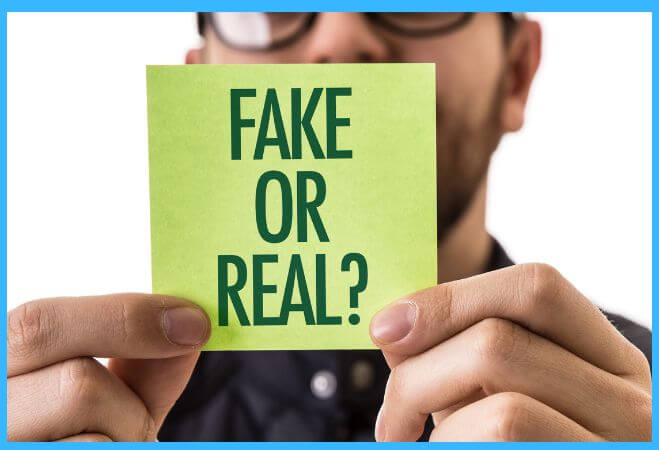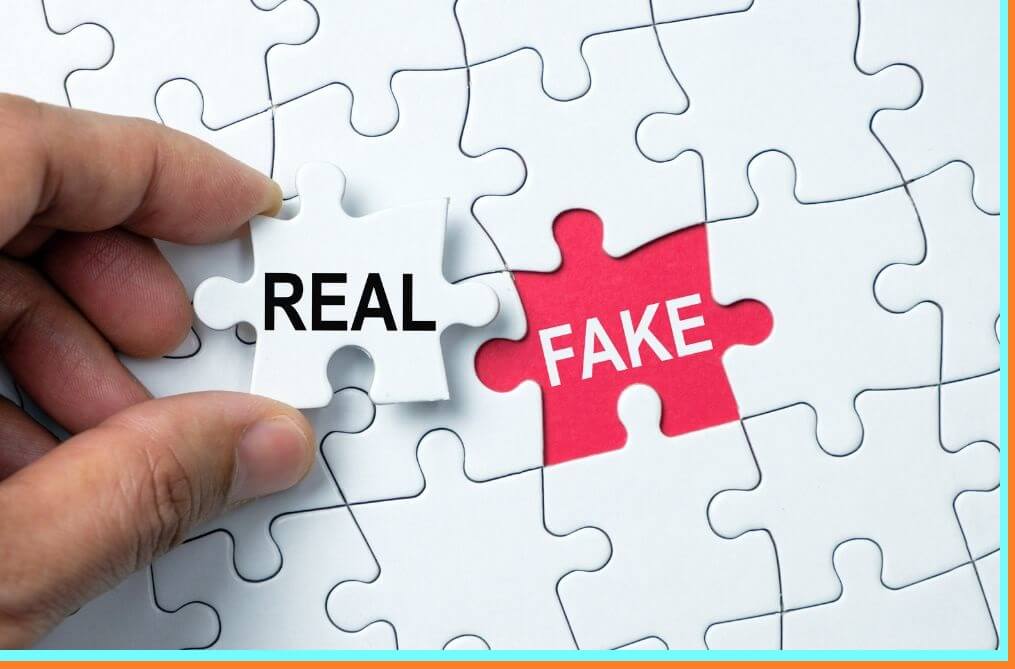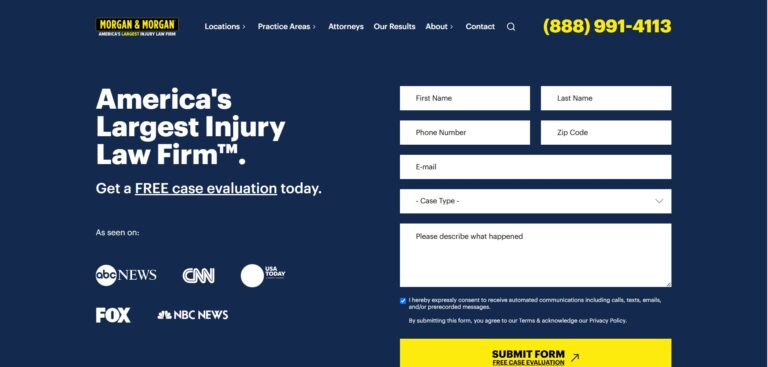Lawyer or attorneys practice in a variety of fields, including family law, commercial law, personal injury, criminal defense, and others.

How to Spot a Fake Law Firm
In today’s complex legal landscape, it’s crucial to distinguish legitimate law firms from fraudulent ones. Spotting a fake law firm is essential to safeguarding your legal rights and avoiding scams that can lead to financial loss, legal complications, and emotional distress.
This guide will equip you with the knowledge to identify the warning signs of a counterfeit law firm, enabling you to make informed decisions. So, if you’re wondering, “How to Spot a Fake Law Firm,” or “How to identify a fake lawyer” read on to discover the key indicators and safeguard yourself from potential scams.
What Is a Fake Law Firm?
A fake law firm refers to a criminal enterprise that poses as a legitimate law firm to defraud vulnerable individuals and businesses out of their hard-earned money. These deceptive firms often employ convincing tactics to appear legitimate and credible:

1. Professional-Looking Websites: Fake law firms create websites that mimic those of real legal practices. These websites may feature polished designs, detailed attorney profiles, and information about legal services.
2. Online Advertisements: They use online ads to attract potential clients. These ads can appear on search engines, social media, or legal directories.
3. Office Appearance: Some fake firms go to great lengths, setting up physical offices that look professional. These offices may have reception areas, conference rooms, and even staff.
4. Sales Pitches: When communicating with potential clients, they use convincing sales pitches. These may include promises of exceptional legal services, quick results, or discounted fees.
5. Impersonation: In some cases, they impersonate real lawyers by using their names, firm details, and other verifiable information. This lends credibility to their scams.
Spotting a fake law firm is essential to protect yourself from falling victim to such schemes. If you encounter any suspicious signs, consider verifying the firm’s credentials, checking state bar profiles, and seeking legal advice if necessary
How to Spot a Fake Law Firm: 10 Red Flags to Watch For

So the question is, how to identify a fake lawyer or a fake law firm requires careful evaluation and scrutiny. By familiarizing yourself with the following signs, you can better protect yourself from falling victim to their fraudulent schemes.
1. State Bar Profile:
Every lawyer who is licensed to practice law in your home state must be listed in your state bar association’s directory. Legitimate law firms are required to have proper licensing and credentials to practice law.
Verify the firm’s credentials by checking with the relevant legal authorities, such as the state bar association or the solicitor’s regulation authority. A lack of valid licensing or unwillingness to provide credentials raises a red flag.
2. Google / Search Engines:
You can search for your attorney on the internet to find any news stories, publications, or websites associated with them.
3. Inconsistent Communication
Fake law firms often exhibit inconsistent communication patterns. They may be difficult to reach, fail to respond promptly to inquiries or provide vague and evasive answers to your questions. Legitimate law firms prioritize effective communication and maintain open lines of contact with their clients.
4. Unprofessional Website or Online Presence
Inspect the law firm’s website and online presence for signs of professionalism and credibility. Fake law firms often have poorly designed websites, grammatical errors, and generic content. Legitimate law firms invest in creating a professional online presence that reflects their expertise and commitment to their clients.
5. Unsolicited Contact or High-Pressure Tactics
Beware of law firms that contact you unsolicited or use high-pressure tactics to push their services. Genuine law firms respect your privacy and adhere to ethical standards, refraining from aggressive solicitation or undue persuasion.
6. Guarantees of Success
Authentic law firms cannot guarantee specific outcomes or results in legal matters. Be cautious if a law firm promises a guaranteed victory or offers unrealistic assurances. Legal proceedings are complex and unpredictable, and ethical attorneys refrain from making unwarranted guarantees.
7. Poor Online Reviews or Reputation
Research the law firm’s reputation by checking online reviews, testimonials, and feedback from previous clients. Fake law firms often have negative reviews or a lack of online presence. Legitimate law firms strive to maintain a positive reputation and have satisfied clients who vouch for their services.
8. Lack of Transparency in Fees
Transparent fee structures are a hallmark of reputable law firms. Be wary of firms that lack transparency or hesitate to provide clear information about their fees. Request a detailed breakdown of costs and compare them with industry standards to ensure you’re not being overcharged.
9. No Physical Office Address
A legitimate law firm should have a physical office address where clients can meet their attorneys or staff members. Fake law firms may provide vague or nonexistent office addresses, signaling their lack of a genuine operational base.
10. Request for Upfront Payments
Exercise caution if a law firm demands substantial upfront payments before providing any legal services. Authentic law firms typically work on a retainer or contingency fee basis and bill clients for services rendered.
11. Limited or No Track Record
Research the law firm’s track record and experience in handling cases similar to yours. Fake law firms may lack a substantial history of successful cases or fail to provide references to their previous clients.
Read More – Beware of Fake Lawyer Email Scams: How to Protect Yourself
how do I know if my law firm is legit?

To ensure the law firm you’re considering is legitimate, it’s important to verify their credentials. Take the following steps:
Checking Bar Association Listings
Contact the local or state bar association to confirm the credentials of the law firm and its attorneys. Bar associations maintain official records of licensed attorneys and can provide information on any disciplinary actions taken against them.
Accessing Legal Directories
Consult reputable legal directories like Martindale-Hubbell or Avvo to find information about the law firm’s reputation, areas of expertise, and client ratings. These directories offer comprehensive profiles of law firms and help you make informed decisions.
Reviewing Court Cases and Legal Publications
Search for any court cases, legal publications, or scholarly articles associated with the law firm or its attorneys. This can provide insights into their expertise, professional standing, and any noteworthy accomplishments.
The consequences of engaging with a fake law firm
Engaging with a fake law firm can have severe consequences. These may include:
1. Financial loss: Fake law firms may demand hefty upfront fees or provide subpar legal services in exchange for payment. The money you invest may be lost, and your legal matters may remain unresolved.
2. Compromised personal information: Fraudulent law firms may collect sensitive personal information, such as social security numbers and financial details, putting you at risk of identity theft or further scams.
3. Ineffective legal representation: Fake law firms lack the expertise and knowledge to handle legal matters competently. Engaging their services can lead to unfavorable outcomes, lost legal rights, or missed opportunities.
Conclusion
In conclusion, knowing “how to spot a fake law firm” or “how to identify a fake lawyer” is essential in safeguarding yourself from potential scams and fraudulent activities. By equipping yourself with the right knowledge and vigilance, you can navigate the legal landscape with confidence. Always remember to conduct thorough research and verify the credentials of any law firm you encounter.
Look for red flags such as poor website design, unprofessional communication, and suspicious payment requests. Remember, it is crucial to trust your instincts and seek legal advice from reputable sources.










This article is a true game-changer! Your practical tips and well-thought-out suggestions hold incredible value. I’m eagerly anticipating implementing them. Thank you not only for sharing your expertise but also for making it accessible and easy to apply.
I’m glad to hear that you found the article valuable! Your enthusiasm and appreciation mean a lot to us. If you have any questions or need further clarification on any of the tips or suggestions, please don’t hesitate to ask. We’re here to help you succeed in implementing them. Thank you for your kind words and for taking the time to read our article.